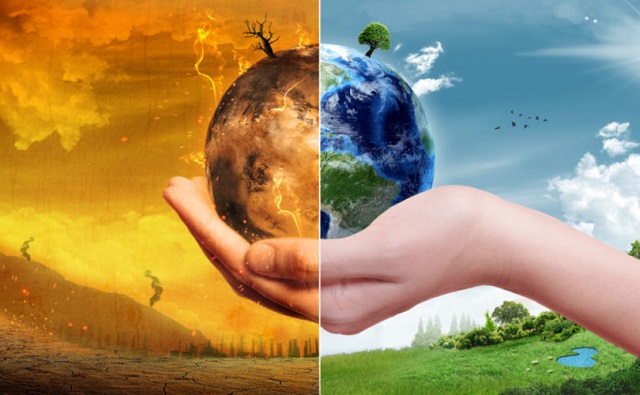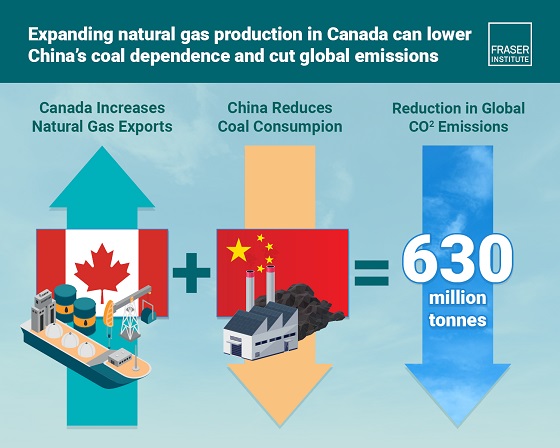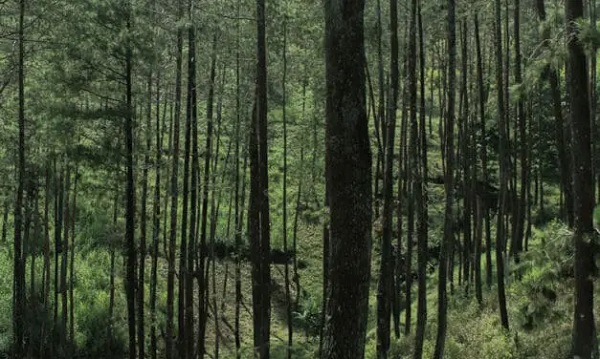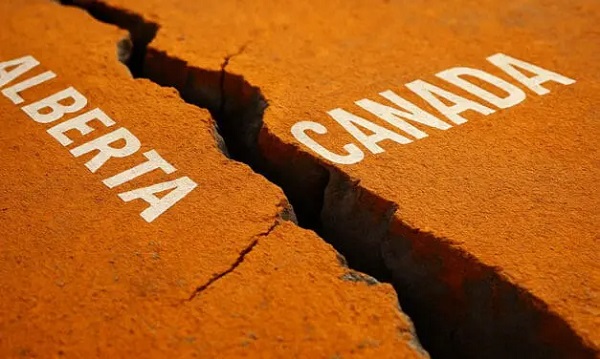Environment
Climate Scientists declare the climate “emergency” is over

The Chamber of Deputies, Prague, Czechia
News release from the Climate Intelligence Group (Clintel)
Climate scientists have issued a shock declaration that the “climate emergency” is over.
A two-day climate conference in Prague, organized by the Czech division of the international Climate Intelligence Group (Clintel), which took place on November 12-13 in the Chamber of Deputies of the Czech Republic in Prague, “declares and affirms that the imagined and imaginary ‘climate emergency’ is at an end”.
The communiqué, drafted by the eminent scientists and researchers who spoke at the conference, makes clear that for several decades climate scientists have systematically exaggerated the influence of CO2 on global temperature.
The high-level scientific conference also declared:
“The Intergovernmental Panel on Climate Change, which excludes participants and published papers disagreeing with its narrative, fails to comply with its own error-reporting protocol and draws conclusions some of which are dishonest, should be forthwith dismantled.”
The declaration supports the conclusions of the major Clintel report The Frozen Climate Views of the IPCC [presented to the Conference by Marcel Crok, Clintel’s co-founder].
Moreover, the scientists at the conference declared that even if all nations moved straight to net zero emissions, by the 2050 target date the world would be only about 0.1 C cooler than with no emissions reduction.
So far, the attempts to mitigate climate change by international agreements such as the Paris Agreement have made no difference to our influence on climate, since nations such as Russia and China, India and Pakistan continue greatly to expand their combustion of coal, oil and gas.
The cost of achieving that 0.1 C reduction in global warming would be $2 quadrillion, equivalent to 20 years’ worldwide gross domestic product.
Finally, the conference “calls upon the entire scientific community to cease and desist from its persecution of scientists and researchers who disagree with the current official narrative on climate change and instead to encourage once again the long and noble tradition of free, open and uncensored scientific research, investigation, publication and discussion”.
The full text of the communiqué follows:
The International Scientific Conference of the Climate Intelligence Group (Clintel), in the Chamber of Deputies of the Czech Republic in Prague assembled on the Twelfth and Thirteenth Days of November 2024, has resolved and now declares as follows, that is to say –
- The modest increase in the atmospheric concentration of carbon dioxide that has taken place since the end of the Little Ice Age has been net-beneficial to humanity.
- Foreseeable future increases in greenhouse gases in the air will probably also prove net-beneficial.
- The rate and amplitude of global warming have been and will continue to be appreciably less than climate scientists have long predicted.
- The Sun, and not greenhouse gases, has contributed and will continue to contribute the overwhelming majority of global temperature.
- Geological evidence compellingly suggests that the rate and amplitude of global warming during the industrial era are neither unprecedented nor unusual.
- Climate models are inherently incapable of telling us anything about how much global warming there will be or about whether or to what extent the warming has a natural or anthropogenic cause.
- Global warming will likely continue to be slow, small, harmless and net-beneficial.
- There is broad agreement among the scientific community that extreme weather events have not increased in frequency, intensity or duration and are in future unlikely to do so.
- Though global population has increased fourfold over the past century, annually averaged deaths attributable to any climate-related or weather-related event have declined by 99%.
- Global climate-related financial losses, expressed as a percentage of global annual gross domestic product, have declined and continue to decline notwithstanding the increase in built infrastructure in harm’s way.
- Despite trillions of dollars spent chiefly in Western countries on emissions abatement, global temperature has continued to rise since 1990.
- Even if all nations, rather than chiefly western nations, were to move directly and together from the current trajectory to net zero emissions by the official target year of 2050, the global warming prevented by that year would be no more than 0.05 to 0.1 Celsius.
- If the Czech Republic, the host of this conference, were to move directly to net zero emissions by 2050, it would prevent only 1/4000 of a degree of warming by that target date.
- Based pro rata on the estimate by the UK national grid authority that preparing the grid for net zero would cost $3.8 trillion (the only such estimate that is properly-costed), and on the fact that the grid accounts for 25% of UK emissions, and that UK emissions account for 0.8% of global emissions, the global cost of attaining net zero would approach $2 quadrillion, equivalent to 20 years’ global annual GDP.
- On any grid where the installed nameplate capacity of wind and solar power exceeds the mean demand on that grid, adding any further wind or solar power will barely reduce grid CO2 emissions but will greatly increase the cost of electricity and yet will reduce the revenues earned by both new and existing wind and solar generators.
- The resources of techno-metals required to achieve global net zero emissions are entirely insufficient even for one 15-year generation of net zero infrastructure, so that net zero is in practice unattainable.
- Since wind and solar power are costly, intermittent and more environmentally destructive per TWh generated than any other energy source, governments should cease to subsidize or to prioritize them, and should instead expand coal, gas and, above, all nuclear generation.
- The Intergovernmental Panel on Climate Change, which excludes participants and published papers disagreeing with its narrative, fails to comply with its own error-reporting protocol and draws conclusions some of which are dishonest, should be forthwith dismantled.
Therefore, this conference hereby declares and affirms that the imagined and imaginary “climate emergency” is at an end.
This conference calls upon the entire scientific community to cease and desist from its persecution of scientists and researchers who disagree with the current official narrative on climate change and instead to encourage once again the long and noble tradition of free, open and uncensored scientific research, investigation, publication and discussion.
Given under our signs manual this Thirteenth Day of November in the Year of our Lord Two Thousand and Twenty-Four.
Pavel Kalenda, Czech Republic [Conference Chairman]
Guus Berkhout, The Netherlands [Co-founder, Clintel]
Marcel Crok, The Netherlands [Co-founder, Clintel]
Lord Monckton, United Kingdom
Valentina Zharkova, United Kingdom
Milan Šálek, Czech Republic
Václav Procházka, Czech Republic
Gregory Wrightstone, United States (see below)
Jan Pokorný, Czech Republic
Szarka László, Hungary
James Croll, United Kingdom
Tomas Furst, Czech Republic
Gerald Ratzer, Canada
Douglas Pollock, Chile
Henri Masson, Belgium
Miroslav Žáček, Czech Republic
Jan-Erik Solheim, Norway
Video below from interview with Gregory Wrightstone.
Better to turn around halfway, than to get lost completely

Not climate change but climate policy is the main threat for the prosperity of western societies at this moment. The Clintel Foundation has stated, with a global network of 2000 scientists and experts, that there is no climate emergency. Western leaders, however, have all voted in favour of Net Zero targets for 2050, which will have a disastrous effect on our economy and therefore our prosperity. Meanwhile, the UN is increasing its effort to fight ‘disinformation’, which in practice means less open debate and more censoring of alternative views.
Climate policies are a threat for entrepreneurs and it enters deeper and deeper into the private life of citizens. Wind turbines of close to 300 meters in height industrialise our countrysides, harming the environment,, biodiversity and public health. House owners are forced to replace their gas heaters by costly heat pumps, leading to rising energy bills. More and more cities reduce speed limits to 30 kms per hour.
There is no support base among the population for all these costly measures but our political leaders so far ignore these objections. Sooner or later the tide will turn, because these policies are unfeasible and unaffordable. Clintel wants to speed up this process by making both citizens and political leaders aware of all the pitfalls. Clintel receives no funding from the government nor from the Postcode Lottery or the industry. We therefore ask citizens and small businesses to support us in our mission.
Your support will be used to:
* Explain in all details there is no climate emergency. No one should be afraid of climate change. We use our websites and social media channels to spread this information and also give interviews in the media.
* Analyse and criticize IPCC reports. We check them for alarmism and one-sidedness. In 2023 we published the book The Frozen Climate Views of the IPCC. We confront the IPCC with our results and will force them to respond to our criticism.
* Raise awareness for the negative side-effects of the current climate policies, both in terms of cost and impact on humans and the environment.
* Intervene in high profile climate court cases such as the one between Friends of the Earth and Shell in The Netherlands. Climate policy should be discussed in Parliaments, not in the courts.
If you share our views, please consider to support us through a (monthly) donation or by becoming Friend of Clintel.
Economy
Canadian Natural Gas Exports Could Significantly Reduce Global Emissions

From the Fraser Institute
By Elmira Aliakbari and Julio Mejía
Doubling Canadian natural gas production and exporting to Asia could reduce global emissions by up to 630 million tonnes—nearly as much as Canada produces in a year
Canada could help significantly reduce global greenhouse gas emissions by increasing natural gas production and exporting the additional supply to Asia in the form of liquefied natural gas (LNG), according to a new study from the Fraser Institute, an independent, non-partisan Canadian public policy think tank.
“As countries like China and India continue to burn coal for power, Canadian LNG offers a lower-emission alternative with the potential for major global impact,” said Elmira Aliakbari, director of natural resource studies at the Fraser Institute and coauthor of the study, Exporting Canadian LNG to the World: A Practical Solution for Reducing GHG Emissions
The study estimates the impact from Canada doubling its natural gas production and exporting to Asia to replace coal-fired power. In that scenario, global emissions could drop up to 630 million tonnes annually, which is the equivalent of removing approximately 137 million cars from the road. More specifically, replacing coal-fired power in China with Canadian LNG could cut emissions by up to 62 per cent for every unit of power produced.
“Focusing only on domestic emissions ignores Canada’s potential to support global climate goals,” said Aliakbari. “By displacing coal abroad, Canadian LNG can play a critical role in cutting total global emissions even if domestic emissions were to increase.”
However, regulatory uncertainty and a range of federal and provincial policies continue to hinder LNG development in Canada, despite strong global demand.
“Policymakers need to clear a path if Canada is going to play a meaningful role in reducing global emissions,” Aliakbari added.

Exporting Canadian LNG to the World: A Practical Solution for Reducing GHG Emissions
- Coal, a major source of greenhouse gas (GHG) emissions, remains a leading energy source in many Asian countries, especially China and India. Some European countries have also turned back to coal as sanctions on Russian energy intensified following the invasion of Ukraine.
- As the world seeks practical solutions for reducing greenhouse-gas emissions, natural gas, with its lower carbon footprint, offers a promising alternative to coal.
- With abundant reserve, Canada is well positioned to help reduce global reliance on coal. By exporting Canadian liquified natural gas (LNG) and helping Asian and European countries reduce their reliance on coal, Canada can lower net global GHG emissions.
- Exporting LNG from Canada to China and substituting LNG for coal in the generation of power there can eliminate between 291 and 687 gCO₂eq per kWh of power generated, a reduction of between 34% and 62%.
- If Canada were to double its current natural gas production and export the additional supply to Asia as LNG to displace an equivalent amount of coal used to generate power, global GHG emissions could be reduced by up to 630 million tonnes annually, a significant reduction equivalent to 89% of Canada’s total GHG emissions.
- Canada enjoys several competitive advantages, including cooler temperatures that reduce liquefaction energy costs and a strategic location that offers shorter shipping routes to Europe and Asia compared to many other suppliers.
- Regulatory challenges and a mix of federal and provincial policies, however, have slowed or blocked LNG developments in Canada.
Alberta
Boreal forests could hold the key to achieving Canada’s climate goals

This article supplied by Troy Media.
 By Science and Technology Desk
By Science and Technology Desk
New study finds billions more trees than expected, making boreal forests a bigger carbon sink than we thought
Canada’s boreal forests may be far more resilient to climate change than previously believed, with new research showing they contain billions more trees than past estimates, potentially boosting Canada’s natural defences in the fight against global warming.
Spanning from Yukon to Newfoundland, the boreal forest is one of the largest intact ecosystems in the world. It plays a crucial role in absorbing carbon dioxide, protecting biodiversity and supporting Indigenous and rural communities.
A new University of Alberta study provided the most accurate estimate to date of how many trees populate the boreal region, reducing long-standing uncertainties in forest carbon modelling and management.
The result: 277 billion trees across the boreal zone, including 30 billion in Alberta—31 per cent more than estimated in a major 2015 global study.
“Our research provides by far the most accurate and credible answer to the question of how many trees are in our boreal forests,” said study lead Fangliang He, a forest ecologist and Canada Research Chair in Biodiversity and Landscape Modelling.
“Knowing that there are 31 per cent more trees than previously estimated suggests our boreal forests have greater capacity to mitigate climate change.”
Tree counts like this help scientists and policymakers understand how much carbon forests can absorb and store, critical for estimating how large a role boreal ecosystems can play in national emissions strategies.
To improve on the earlier global estimate, He’s team compiled data from a record 4,367 tree plots across Canada and Alaska, compared with just 346 used in the 2015 study.
“This provides a large set of data with extensive geographic coverage in North America,” He said.
To measure trees 10 centimetres or larger in diameter—the same threshold used in the 2015 analysis—He and his team used an artificial intelligence algorithm to develop competition-based models that included tree height, a key indicator of forest competition. The use of AI allowed the researchers to detect patterns that traditional methods might miss.
“These innovative models represent a major advance in improving the accuracy of estimating tree count.”
The researchers also projected future tree density under a range of climate scenarios to see how the boreal forest might respond to a warming planet. The findings were surprising: under increasingly warmer conditions, tree density in the boreal forest would rise overall by at least 11 per cent by 2050.
“This result suggests that boreal forests might be more resilient to climate change than we thought,” He said.
The study, he added, underscores the need for better data and forecasting tools to support forest management and climate policy.
While the federal government has pledged to plant two billion trees by 2030, He said that effort is nowhere near enough.
“That number only accounts for 0.83 per cent of our estimated total number of 240 billion boreal trees in Canada, speaking to the mitigation challenge through tree-planting,” he said.
At current planting rates, he said, it would take centuries to match the natural regeneration and density needed to make a measurable impact.
“Protection of natural forests is the best nature-based solution.”
The study contributes to a growing body of research using artificial intelligence to model complex ecological systems, and could influence Canada’s future forestry and climate strategies.
Science and Technology Desk
Troy Media empowers Canadian community news outlets by providing independent, insightful analysis and commentary. Our mission is to support local media in helping Canadians stay informed and engaged by delivering reliable content that strengthens community connections and deepens understanding across the country
-

 Addictions11 hours ago
Addictions11 hours agoMan jailed for trafficking diverted safer supply drugs, sparking fresh debate over B.C. drug policies
-

 Alberta13 hours ago
Alberta13 hours agoHow Trump and Alberta might just save Canada
-

 Business12 hours ago
Business12 hours agoThe Liberals Finally Show Up to Work in 2025
-

 Alberta11 hours ago
Alberta11 hours agoJann Arden’s Rant Will Only Fuel Alberta’s Separation Fire
-

 Bruce Dowbiggin8 hours ago
Bruce Dowbiggin8 hours agoCaitlin Clark Has Been The Real Deal. So Her WNBA Rivals Hate Her
-

 Banks9 hours ago
Banks9 hours agoCanada Pension Plan becomes latest institution to drop carbon ‘net zero’ target
-

 Daily Caller10 hours ago
Daily Caller10 hours agoThere’s A Catch To California’s Rosy Population Stats
-

 espionage1 day ago
espionage1 day agoTrudeau Government Unlawfully Halted CSIS Foreign Operation, Endangering Officers and Damaging Canada’s Standing With Allies, Review Finds




